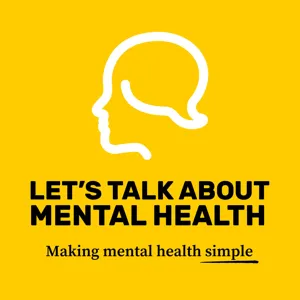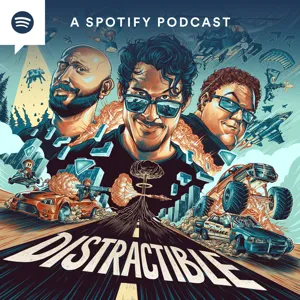Podcast Summary
Exploring the Importance of Emotions for Personal Growth: Embracing negative emotions can lead to personal growth and increased happiness. Understanding complex emotions can foster meaningful connections and a richer emotional experience.
Embracing and learning from negative emotions can lead to personal growth and increased happiness, despite being challenging. Apple Card offers cashback rewards as a practical way to earn money back on daily purchases. Airbnb can be a source of income by renting out one's home when traveling. Express Employment Professionals can help individuals find jobs in various industries. Suppressing negative emotions may lead to worsened feelings in the long run. In her new book, Atlas of the Heart, Brené Brown explores the importance of acknowledging and understanding complex emotions. Growing up, she learned to observe emotions in others as a form of psychological safety due to her family's perception of emotions as weakness. Embracing emotions and learning from them can lead to meaningful connections and a richer emotional experience.
Understanding Emotions: The Power of Labeling: Limited emotional vocabulary can hinder self-understanding and empathy towards others. Labeling emotions can give us power and lead to better communication and understanding.
Our limited ability to recognize and label emotions can hinder our understanding of ourselves and others. The speaker, Brene, shares her experience of being able to predict behavior based on emotions, which she later realized was a rare ability. She was shocked to find that most people could only recognize a few basic emotions and that language significantly shapes our emotional experiences. Brene's fascination with emotions led her to become a social worker, and she spent years pondering the implications of having a limited emotional vocabulary. She believes that the avoidance of negative emotions and the misconception that acknowledging them will amplify them are significant reasons for this limitation. However, Brene argues that labeling emotions can actually give us power, as opposed to the common belief that it will amplify them. In essence, expanding our emotional vocabulary and being willing to acknowledge and label our emotions can lead to better communication, empathy, and understanding of ourselves and others.
Exploring 87 emotions and experiences: Understanding emotions requires sensitivity and nuance, as they are complex experiences shaped by culture and context. Explore emotions in detail for personal growth and healing.
Understanding and identifying emotions is a complex and culturally nuanced process. Despite the lack of consensus on a definitive number of emotions, the exploration of emotions and experiences can provide valuable insights for personal growth and healing. The author, in her research, identified 87 emotions and experiences based on feedback from 70,000 participants in an online course. However, it's important to note that the emotions identified may vary in different cultural contexts. The author also emphasizes the importance of getting into emotional granularity and mapping out the tiny emotions and how they move through space. The metaphor of creating an emotional atlas, with layers representing different aspects of emotions, was used to illustrate this concept. Emotions are not just simple labels, but complex experiences that are shaped by culture and context. Therefore, it's crucial to approach the exploration of emotions with sensitivity and nuance.
Expand emotional vocabulary for deeper connections: Being curious and open to others' emotions can lead to deeper connections and growth. Mislabeling feelings can hinder healing and learning.
While it may be challenging to accurately recognize emotions in others, it's more productive to get curious, connect deeply, and listen rather than diminishing, questioning, or challenging. Language plays a significant role in shaping our emotions and relationships, and mislabeling feelings can hinder the healing and learning process. For instance, if someone is experiencing disappointment but only has the language of sadness available, the conversation may not delve into the underlying expectation that was betrayed, preventing the opportunity for growth. Therefore, it's essential to expand our emotional vocabulary and be open to the complexities of our feelings and those of others.
Exploring Emotions: Biology, Biography, Behavior, and Backstory: Understanding emotions requires examining their biological underpinnings, personal history, outward expressions, and contextual backstory. Be curious, empathetic, and reflective.
Understanding emotions involves examining the interplay of biology, biography, behavior, and backstory. Biology refers to the physical sensations we experience in our bodies when we feel emotions. Biography involves our personal history and how it shapes our understanding and expression of emotions. Behavior is how we outwardly display emotions. Lastly, backstory is crucial because people's emotional responses can't always be determined based on what's visible; understanding their backstory can provide valuable context. Additionally, the discussion emphasized the importance of recognizing our own emotional landscape and the complexities within it, such as the nuances between different emotions like jealousy and envy. Comparison, a natural human tendency, can lead to various outcomes depending on our response. Overall, the conversation underscored the significance of being curious, empathetic, and reflective when it comes to emotions.
Understanding Comparison and Surprise Emotions: Recognizing the differences between emotions like comparison, surprise, jealousy, envy, worry, and rumination can lead to increased self-awareness and personal growth.
Comparison is a natural part of being human, but letting go of it can lead to a more divine and peaceful mindset. Comparison is not limited to humans, as even animals exhibit this behavior. Surprise is a unique emotion with a very short duration, acting as a bridge to other emotions and cognitions. For some individuals, like the speaker, surprise can heighten emotions and be anxiety-producing. Additionally, emotions such as jealousy, envy, worry, and rumination can be easily confused, with rumination being particularly dangerous as it can lead to negative psychological outcomes. Understanding these distinctions and recognizing our emotional responses can lead to greater self-awareness and personal growth.
Understanding the nuances of nostalgia and emotions: Sandra Garrido's research distinguishes between healthy nostalgia and harmful rumination, and understanding emotions like rumination and worry can help us deal with them effectively.
While nostalgia can bring joy and warmth, it's important to be mindful not to get stuck in negative thought patterns associated with it. Sandra Garrido's research highlights the difference between healthy nostalgia and harmful rumination. Meanwhile, in a practical application, hosting on Airbnb can be a great way to earn extra income and even make travel more affordable. Additionally, Express Employment Professionals can help job seekers find opportunities with no fees. In the realm of emotions, Brene Brown identified 87 emotions, some of which can be tricky to distinguish, such as rumination and worry, which point in opposite directions – the past and the future, respectively. Understanding these nuances can help us deal with emotions more effectively and break free from negative patterns.
Navigating Emotional Nuances: Recognizing emotional connections and reevaluating labels can lead to improved emotional responses and outcomes.
Understanding the nuances between seemingly different emotions can help us navigate them more effectively. For instance, worry and rumination, while distinct, can be confused due to their overlap in dealing with past or future concerns. Similarly, anxiety and excitement, though distinct experiences, can share physiological responses. By recognizing these emotional connections, we can prepare ourselves better and potentially shift our responses to improve outcomes. Another insight gained from the discussion was the importance of remembering the location of emotions on our emotional map. For example, resentment, which the speaker had long struggled with, was discovered to be living on the wrong continent in her life, leading to a profound shift in how she approached and responded to that emotion. Overall, the discussion emphasized the importance of emotional awareness and the potential benefits of reevaluating our emotional labels and responses.
Understanding the true nature of resentment and disappointment: Recognizing envy as the root cause of resentment and focusing on personal needs and boundaries can help address these emotions and improve relationships. Disappointment arises from violated expectations and understanding its source can lead to personal growth.
Understanding the true nature of emotions like resentment and disappointment can lead to personal growth and improved relationships. Resentment, contrary to popular belief, is not a result of anger but rather a function of envy. Envy stems from a desire for something another person has, such as boundaries or time affluence. Disappointment, on the other hand, arises from violated expectations. By recognizing the root causes of these emotions and focusing on personal needs and boundaries, individuals can effectively address them and foster healthier relationships. The power of understanding emotions lies in its ability to provide a better map for navigating complex emotional landscapes and ultimately, helping us flourish.
Better mapping our emotions: Identifying and labeling emotions with precision fosters self-awareness, self-compassion, and resilience.
Recognizing and describing our emotions more precisely is crucial for better understanding ourselves and improving our emotional well-being. Author and researcher Brené Brown emphasizes the importance of language, self-awareness, and acceptance of our emotional experiences. By identifying and labeling our feelings with more precision, we can create space for dealing with difficult emotions and even reframe them in a positive light. This practice not only helps us navigate our emotional landscape but also fosters greater self-compassion and resilience. So, in the new year, let's commit to better mapping our emotions and treating them as part of a beautiful and complex emotional experience. When faced with challenging emotions, we can create space for them and even practice gratitude for the opportunity to feel such a rich emotional life.
Accessible, flexible, and affordable mental health support with BetterHelp: BetterHelp is an online therapy platform providing accessible, flexible, and affordable mental health support through licensed therapists via text, voice, or video sessions, making therapy more convenient and cost-effective
Mental health support is essential for everyone, and it should be accessible, flexible, and affordable. BetterHelp is an online therapy platform that offers these benefits. With BetterHelp, you can connect with a licensed therapist at your convenience, making therapy more accessible than ever before. The platform is user-friendly, allowing you to communicate with your therapist through various means, including text, voice, or video sessions. Moreover, online therapy with BetterHelp is often more cost-effective than traditional in-person therapy, making mental health care more accessible to a larger population. So, if you're looking for mental health support that fits your schedule and budget, consider trying BetterHelp. Visit their website at betterhelphelp.com to learn more.






